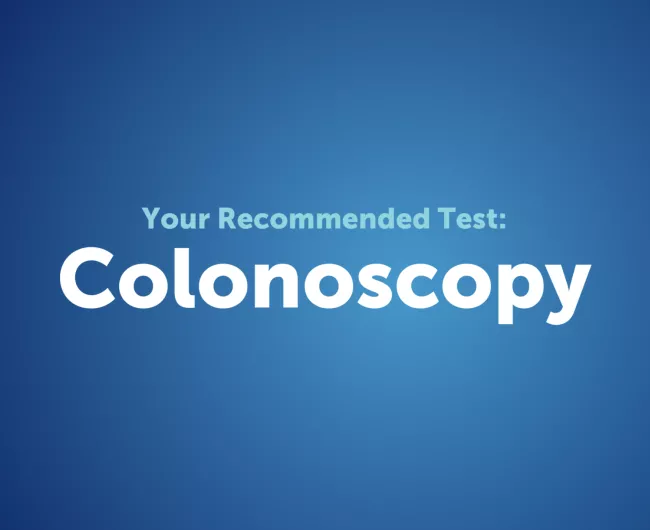Your Screening Recommendation

Talk to your health care provider now.
Your health history puts you at higher risk for colorectal cancer, so a colonoscopy is the best test for you. Colon cancer and rectal cancer are two of the most preventable cancers, and they are highly treatable if caught early. Talk to a health care provider now, and remember, the most common symptom of colorectal cancer is no symptom.





